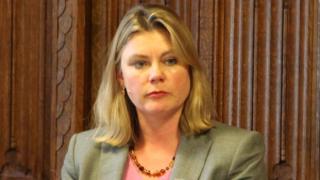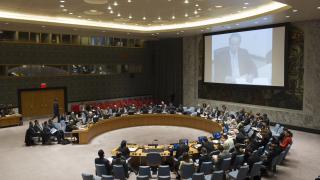
Last month saw the African Union (AU) call for immunity for sitting heads of state facing the International Criminal Court (ICC). This was prompted by the cases against the Kenyan president and vice-president on charges of orchestrating post-election violence in 2007/08, during which more than 1,000 people were killed and 600,000 displaced. However, the commitment to combatting impunity for perpetrators of crimes against humanity is a founding principle of the ICC, and this demand fundamentally undermines it.
With this, the age-old and apparently unavoidable ‘justice versus peace’ debate has once again come to the fore. Ensuring that heads of state are tried and prosecuted for human rights violations is seen as a crucial aspect of serving justice, however, it is also argued that a prompt end to violence and facilitation of peace should take precedence. As the pursuit of justice can often prolong or even exacerbate conflict, the two are often seen to be mutually exclusive.
There can be real problems in pursuing justice above all else. Firstly, do the ICC's trials have a tangible impact, or are they simply a symbolic gesture? Some argue that the ICC is redundant because the threat of prosecution does little to deter mass atrocity crimes. Indeed, there are situations in which serious and prolonged violence ended without the need for the ICC or an equivalent court’s involvement, such as in Northern Ireland and South Africa.
What is more, it is possible that the threat of ICC indictment may actually worsen the situation on the ground. The potential for a downward spiral once an oppressor is charged and thus has no alternative escape route can be huge. Has the indictment of President Omar al-Bashir resulted in either peace or justice being served in Sudan? The warrant for his arrest has arguably boosted his desire to maintain power, whilst reducing his capacity and willingness to partake in peace talks, foreclosing any opportunity for international negotiation. Once the mechanisms of the ICC have been invoked, they are difficult to reverse, often instilling a counter-productive ‘fight till the end’ attitude.
It is without doubt that these concerns, along with other challenges surrounding inadequate witness protection and accusations of bias against African states, has brought the utility of the ICC into question. But whether these tensions are irreconcilable and warrant a rejection of the ICC, as African leaders have suggested, is by no means certain. The 'justice versus peace' argument is based on the tenet that ICC trials inhibit peace and stability and that focusing efforts on the cessation of human rights violations is preferable in the short-term to blindly issuing arrest warrants.
But this misguided dichotomy has warped our expectations of the role and function of justice. As Elizabeth Evenson of Human Rights Watch pointed out at a recent meeting of the UN APPG on the ICC – “justice is an end in itself.” Although it is important to look at the intersection between peace and justice, justice is beneficial itself by providing accountability and redress to victims of mass atrocity crimes. Peace and justice need not be mutually exclusive – in the long term, justice is key to reconciliation.
It is therefore vitally important that the ICC maintains its focus on those most affected by these crimes, and properly explains the benefits of working through the international justice system. The ICC is better equipped to assert its relevance if it can claim to represent the needs of victims. This is certainly true with regards to the 130 civil society groups from across Africa who called on African states parties to the ICC to reaffirm their support, as well as the victims of the Kenyan violence who have written to the UN Security Council urging them not to defer the prosecution of President Kenyatta.
The Security Council was right to reject the AU's deferral request. The victims of these horrific crimes have the right to seek justice, and the suggestion that this can really be served while letting state leaders ‘off the hook’ is both counter-productive and counter-intuitive.
Stephanie Siddall is currently a Peace & Security Intern at UNA-UK.












